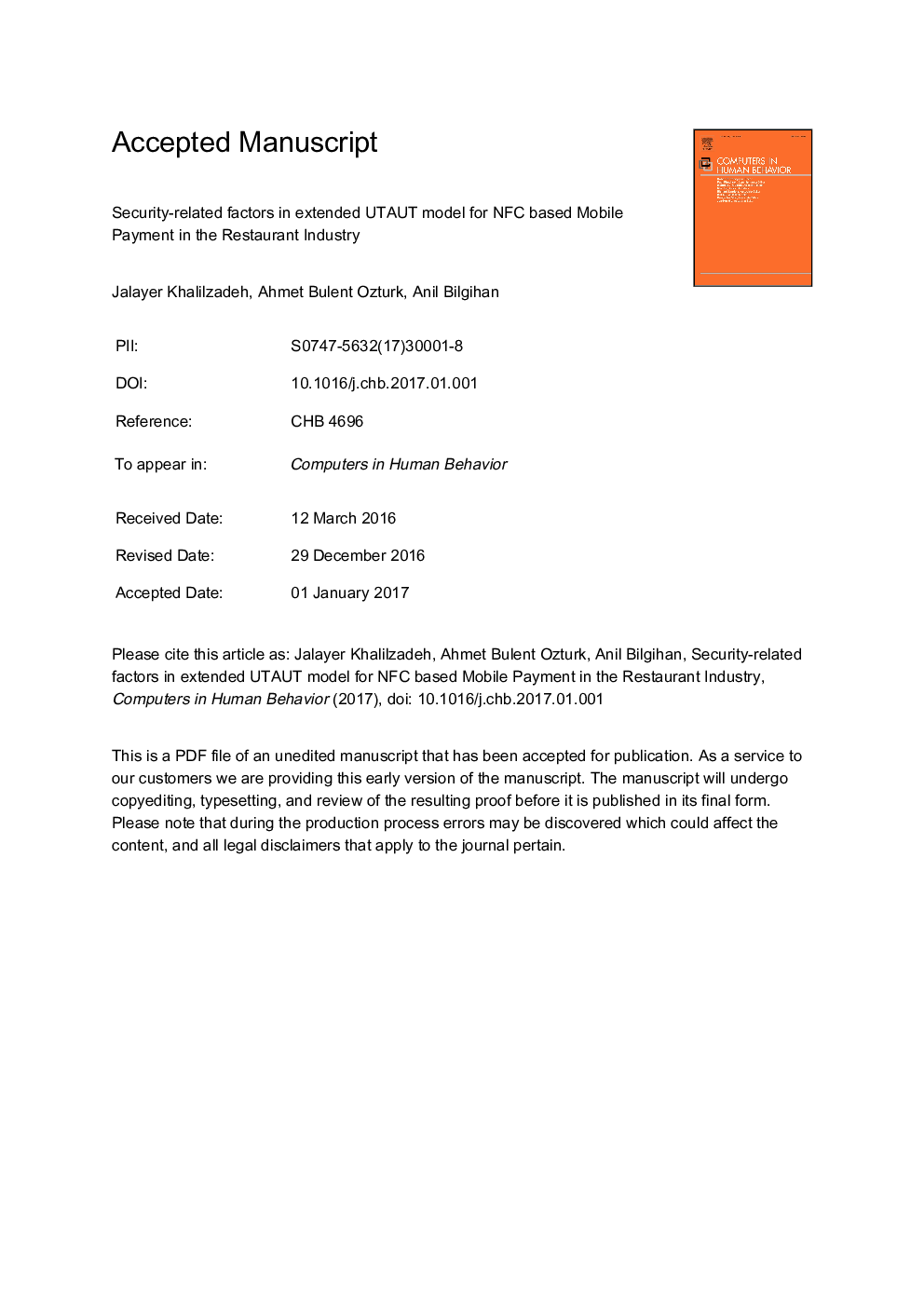| Article ID | Journal | Published Year | Pages | File Type |
|---|---|---|---|---|
| 4937318 | Computers in Human Behavior | 2017 | 50 Pages |
Abstract
This study aims to provide an integrated model that examines the determinants of near-field communication (NFC) based mobile payment (MP) technology acceptance in the restaurant industry. The proposed model, which combines the unified theory of acceptance and use of technology (UTAUT) and technology acceptance model (TAM), was tested via structural equation modeling (SEM) by using data collected from 412 restaurant customers. The study results indicated that the proposed model provides approximately 20% greater explanatory power and predictive accuracy than the original UTAUT model and demonstrates strong evidence of the effects of risk, security, and trust on customers' intentions to use NFC-based MP technology in restaurant settings. In addition, considering the total effect, attitude, security, and risk have the most substantial impact on customers' behavioral intentions. The study results further demonstrate that risk, security, and trust are also important determinants, with direct and indirect impacts, of other critical constructs (i.e., effort expectancy, hedonic and utilitarian performance expectancy, attitude, and intention). The empirical findings provide valuable theoretical contributions for researchers and practical implications for restaurant operators and technology vendors by explaining the reasons as to why the NFC-based MP is not popular in North American restaurants.
Keywords
Related Topics
Physical Sciences and Engineering
Computer Science
Computer Science Applications
Authors
Jalayer Khalilzadeh, Ahmet Bulent Ozturk, Anil Bilgihan,
